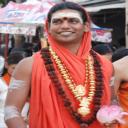Yahoo Answers is shutting down on May 4th, 2021 (Eastern Time) and beginning April 20th, 2021 (Eastern Time) the Yahoo Answers website will be in read-only mode. There will be no changes to other Yahoo properties or services, or your Yahoo account. You can find more information about the Yahoo Answers shutdown and how to download your data on this help page.
Trending News
Does anyone know the ancient Vedic Gurukala System?
I am wondering because it seems to be like utopia (a perfect society)
For 0-7 the kids will be brought up without any societal conditioning, the will be like gems. 7-14 they will be initiated in gayatri mantra. which mean "Let me meditate on the cosmic energy and let the cosmic energy help me to meditate on it." And they will study everything or General Knowledge
7-21 based on the type of child their teacher will decide what is be best for them and they will either study and kama sutra or bhrama surta. Either get enlighted by 21 or married and as a householder.
soon the householder will decide to study the yoga sutra and then they will get enlightend.
Before 75 years of age everyone is enlightend. Therefore it is a perfect Society!
Go to www.youtube.com/LifeBlissFoundation and see the videos there you will understand the athority on which my source is standing
4 Answers
- 1 decade ago
Old Hindu school system
A Gurukul (Guru refers to "teacher" or "master"; Kul refers to his domain, from the Sanskrit word kula, meaning extended family.) is a type of ancient Hindu school in India that is residential in nature with the shishyas or students and the guru or teacher living in proximity, many a time within the same house.[1] The Gurukul is the place where the students resided together as equals, irrespective of their social standing. The students learn from the guru and also helps the guru in his day-to-day life, including the carrying out of mundane chores such as washing clothes, cooking, etc.
The guru-shishya parampara is a hallowed tradition in Hinduism. Other religious groups in India have adapted it into different forms that fall within their religious ideology and framework such as Jainism, Buddhism, and Sikhism. At the end of a shishya's study, the guru asks for a "guru dakshina," since a guru does not take fees. A guru dakshina is the final offering from a student to the guru before leaving the ashram. The teacher may ask something or nothing at all.
By the colonial era the Gurukul system was almost dead in India excepting in a few remote regions. An exception was Kerala where the warrior Nair clan and their own military Gurukuls called Kalaris.[citations needed]
In the recent past, some efforts have been started both genuine and others driven by monetary gains, whereby this gurukul tradition is in the phase of resurrection. Among example of modern day revival of gurukula tradition is Ananda Marga Gurukula established by Ananda Marga in 1990 at Anandanagar (India) with a network of branches in scores of countries around the world.[2] It is not a religious school in Hindu tradition but rather a secular academic institution based on universal spiritual principles. Vivekananda College near Madurai is an NAAC -accredited `A' grade autonomous college that is run under a Gurukula system.[3]
There are many Vedic Gurukulas in modern India which follow ancient tradition. Government of India provides financial and other help to Vedic teachers who establish such Vedic gurukulas for imparting Vedic education without asking for any fees from the students ; the leading government institution offering such assistance is Sândipani in Ujjain, named after the guru of Krishna,which also helps Vedic gurukuls in preparing students for examinations held by recognized Sanskrit universities.[citations needed]
In Karnataka, there are some projects run to rejuvenate the ancient Indian education system. Prabodhini Gurukula(http://prabodhinigurukula.org),/ Maitreyi Gurukulam and Vedavijnana Gurukulam(http://vvgurukulam.org)/ are the major ones. Shubham Karoti and Om Shantidhama are also in the similar lines, which are near Bangalore, capital of Karnataka





